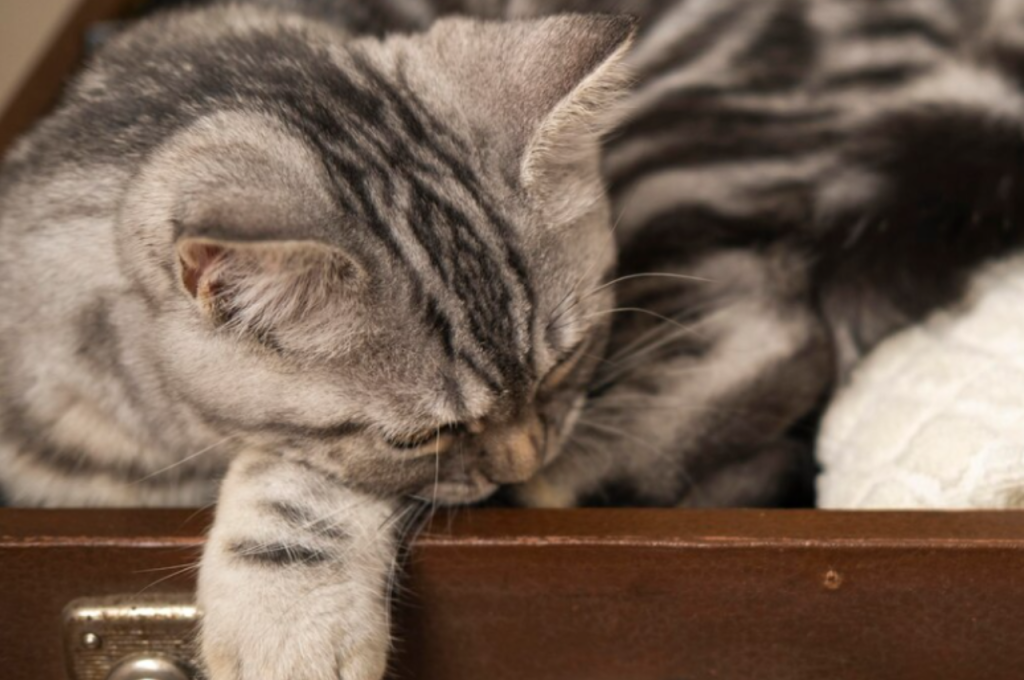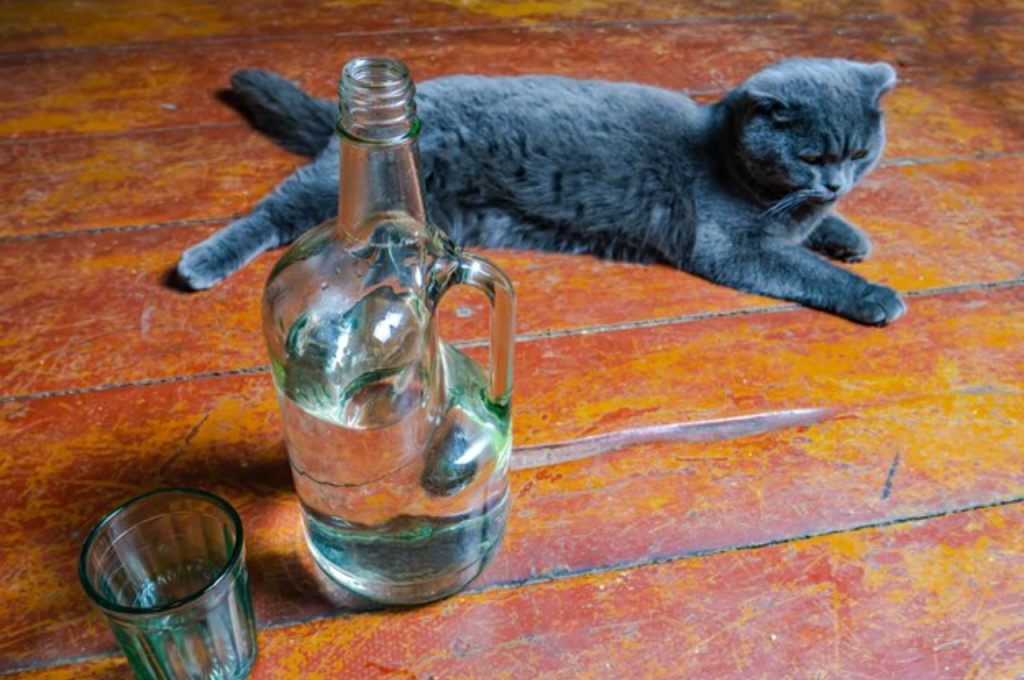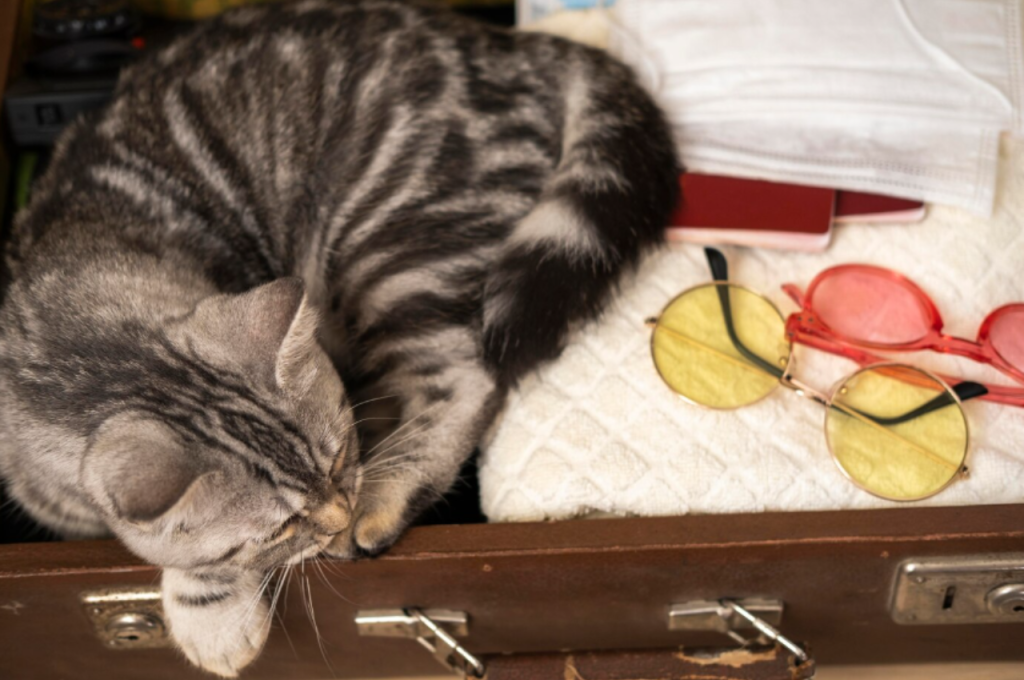Cats should never drink alcohol as it is toxic to them and can lead to serious health issues. Cats lack the necessary enzymes to break down alcohol, resulting in potential poisoning.
Introducing alcohol to cats can have severe consequences, ranging from coordination problems and difficulty breathing to coma and even death. Cat owners must keep all alcoholic beverages away from their feline companions to ensure their safety and well-being.
Always prioritize the health of your cat by steering clear of alcohol and providing them with a safe and cat-friendly environment. By understanding the dangers of alcohol consumption for cats, you can help keep your beloved pet healthy and happy.
The Dangers of Alcohol for Cats
Alcohol Toxicity in Cats can have severe consequences. It is important to understand the risks associated with alcohol consumption for our feline friends. Cats lack the enzymes needed to break down alcohol, making it highly toxic to them.

Alcohol Toxicity in Cats
Alcohol consumption can lead to toxicity in cats due to their inability to metabolize alcohol like humans. Even small amounts of alcohol can cause harm to cats, potentially leading to serious health issues.
Symptoms of Alcohol Poisoning in Cats
Recognizing the Signs of Alcohol Poisoning in Cats is crucial for timely intervention. Symptoms may include vomiting, lethargy, difficulty breathing, and coordination problems. If you suspect your cat has consumed alcohol, seek veterinary help immediately.
Why Cats Should Not Drink Alcohol
While humans may enjoy a glass of wine or a cocktail from time to time, it is important to remember that alcohol is not suitable for cats. As responsible cat owners, we must ensure the well-being of our furry friends. In this article, we will explore the various reasons why cats should not drink alcohol and the potential dangers it can pose to their health.
Effects of Alcohol On Cat’s Bodies
Alcohol, in any form, can have severe effects on a cat’s body. Their smaller size and unique metabolism make them incredibly susceptible to the toxic effects of alcohol. When consumed, alcohol interferes with the cat’s central nervous system, leading to a range of dangerous consequences.
Liver and Kidney Damage
- Alcohol consumption can cause significant damage to a cat’s liver and kidneys.
- The liver is responsible for metabolizing alcohol and other toxins in the body.
- In cats, the liver is not equipped to handle the breakdown of alcohol efficiently, resulting in a buildup of toxins.
- Over time, this accumulation of toxins can lead to liver and kidney damage, causing permanent harm to the cat’s health.
- Furthermore, cats with preexisting liver or kidney conditions are at an even higher risk when exposed to alcohol.
It is important to note that alcohol comes in many different forms, including beer, wine, and spirits. Regardless of the type, the effects of alcohol on cats remain the same. Therefore, it is crucial to keep all alcohol securely stored and out of reach from curious feline companions.
Understanding the potential dangers of alcohol consumption for cats reinforces the importance of responsible pet ownership. By keeping alcoholic beverages away from cats and providing them with a safe and appropriate diet, we can help ensure their long-term health and well-being.
Common Scenarios of Cats Being Exposed to Alcohol
Explore the typical situations in which cats may inadvertently encounter alcohol, highlighting the importance of vigilance and preventative measures to keep feline companions safe from harm.
Accidental Ingestion By Cats
Cats are curious creatures and may accidentally ingest alcohol if left within their reach. This can occur when a cat mistakenly licks spilled alcoholic beverages or consumes food that has been prepared with alcohol, such as sauces or desserts.
Exposure to Alcoholic Fumes
Another common scenario is when cats are exposed to alcoholic fumes. Cats have a keen sense of smell, and the aroma of alcohol can attract them. They may inhale these fumes when alcohol is being consumed or spilled, which can have detrimental effects on their health.

How to Keep Cats Safe from Alcohol
Cats are curious creatures, and it’s important to take precautions to keep them safe from potential hazards, including alcohol. As responsible pet owners, it’s essential to be proactive in preventing our feline friends from accessing alcoholic beverages. Here’s how to keep cats safe from alcohol:
Safe Storage of Alcoholic Beverages
Store alcoholic beverages securely in a place where your cat can’t access them. Cabinets and high shelves are good options for keeping drinks out of your pet’s reach. Be mindful of any spills, as even small amounts of alcohol can pose a danger to your cat.
Awareness and Prevention
Be aware of any potential sources of alcohol in your home, and take proactive measures to prevent your cat from coming into contact with them. Dispose of empty containers promptly and ensure that any spills are cleaned up immediately to eliminate the risk of your pet ingesting alcohol.
Alternatives to Alcohol for Cats
Cats are highly sensitive to alcohol, and consuming it can lead to serious health issues and even be fatal. It is important to keep alcoholic beverages out of reach of your feline friend. However, you may wonder if there are any safe alternatives or beverages that cats can enjoy. Thankfully, many cat-safe options can provide hydration and a pleasant taste for your feline companion. Let’s explore a few alternatives to alcohol for cats.
Cat-safe Beverages
If you’re looking for safe and refreshing beverages for your cat, there are a few options you can consider:
- Water: The most essential and vital beverage for cats is water. Ensure your cat has access to fresh, clean water at all times.
- Cat Milk: Many pet stores offer specially formulated cat milk, which is a safe and delicious alternative to cow’s milk. It is lactose-free and enriched with essential nutrients.
- Cat Water Fountains: Cats are attracted to running water, and investing in a cat water fountain can encourage them to drink more. These fountains provide a constant flow of fresh water, making it more enticing for your cat.
Healthy Treats for Cats
While beverages are important for hydration, healthy treats can also be a great way to indulge your cat without the risks of alcohol consumption. Here are some cat-safe and healthy treat options to consider:
- Freeze-Dried Treats: Freeze-dried treats are a nutritious and delicious option for cats. They are made from real meat, such as chicken or fish, and undergo a dehydration process that preserves the essential nutrients.
- Interactive Treat Toys: Interactive treat toys not only provide mental stimulation for your cat but can also dispense small portions of treats as a reward. This helps keep them entertained while enjoying a tasty treat.
- Homemade Cat Treats: If you enjoy baking, you can make homemade cat treats using cat-friendly ingredients. There are countless recipes available online that use ingredients like tuna, chicken, or catnip.
Remember, providing your cat with alternative beverages and healthy treats can help keep them satisfied and hydrated. Always consult with your veterinarian for specific recommendations based on your cat’s dietary needs and preferences.
Seeking Veterinary Help
If you’re wondering whether cats can drink alcohol, it’s important to know that alcohol can be toxic to cats and should be avoided at all costs. If your cat accidentally ingests alcohol, seek veterinary help immediately to ensure their health and safety.
It’s crucial to keep all alcoholic beverages out of reach of your feline friends.
Seeking Veterinary Help
Cats should never consume alcohol as it is toxic to their system. If you suspect your cat has ingested alcohol, it is crucial to seek veterinary help immediately to prevent any serious health complications.
Immediate Actions to Take
1. Contact your veterinarian or an emergency animal hospital right away.
2. Provide information on the type and amount of alcohol ingested.
3. Observe your cat closely for any symptoms of alcohol poisoning such as vomiting, lethargy, or confusion.
Treatment for Alcohol Poisoning
Veterinary treatment may involve inducing vomiting to remove the toxin from the system. – Supportive care such as fluid therapy and monitoring vital signs may be necessary. Your vet will tailor the treatment plan based on the severity of the poisoning. Remember, timely intervention is key to a successful outcome when dealing with alcohol poisoning in cats.
Myths vs. Facts about Cats and Alcohol
When it comes to the debate on whether cats can drink alcohol, numerous myths and misconceptions need to be addressed. Understanding the facts versus the myths is crucial for the well-being of your furry feline friend.
Clarifying Misconceptions
One common misconception is that cats can handle alcohol like humans, but the reality is quite different. Cats lack the necessary enzymes to process alcohol effectively, making it toxic to their system.
Dispelling Myths
Contrary to popular belief, giving alcohol to your cat will not help it relax or alleviate any discomfort. Even a small amount of alcohol can lead to serious health issues for your pet.

Conclusion
To summarize, alcohol is extremely dangerous and toxic for cats. It can lead to severe health issues and even death. As responsible pet owners, we must keep all forms of alcohol away from our feline friends. Instead, provide them with a safe and appropriate diet and plenty of fresh water.
Remember, your cat’s well-being should always be a priority.
